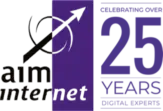Resource page link building is key to a healthy marketing strategy regardless of your business or industry. Backlinks are great for SEO, and help increase traffic to your website.
But where do you start? Resource pages can play a big part in your link building strategy. They have proven to be a very effective optimisation method yet, many businesses are still not taking advantage of this opportunity. Second only to content creation, a resource page is one of the most effective ways to build backlinks.
What is a resource page link building?
Resource page link building is the practice of building backlinks from pages that have curated lists of links to external websites (resource pages).
The purpose of a resource page is to link to other references and pages, therefore, it’s extremely easy to get started. All you need to do is find authority resource pages that are related to your site and content. Then, you will need to convince the owners/hosts of that site to add your website to their resource page. The process is far less daunting than people initially think, which is why it should be used more often.
Contact Us
In this blog, you’ll discover the best ways to build quality links, specifically from resource pages. As well, you’ll learn how to find relevant resource pages (which will be your first step). Unfortunately, no matter how great your content is, you can’t rely on someone just coming along and adding you to their list without any effort on your part. For the best results, you need to make the first move.
Find Resource Pages
To begin resource page link building, you need to search out resource pages within the same industry, that relate to your content. Then, make a short list of all the ones that are closest in topic and sit within your niche. Google is your best friend for this part, you don’t need any other software or tools. For example, if you are a marketing company, the following search could be used to help find relevant resource pages.
“Marketing” + inurl:links
By putting your keyword in quotes, Google will only display results related to this specific word. And by adding “inurl:links” to the search query, it limits the results to websites with the word “links” in the URL. This is more likely to give you resource pages than if you searched without this element. Without it, it is likely to just give you all content related to marketing, which would be no help at all.
Generally, the results displayed in the SERPs will be a list of links in some form or another. Then all you have to do is check out the sites, and decide which ones will be beneficial to you.
What You’re Looking For
With resource page link building, quality over quantity is definitely the way forward. Be choosy. Make sure the sites you reach out to are going to offer you the best results. One of the most important things to look out for when selecting resource pages, is the page authority. In this instance, page authority outweighs domain authority. The reason for this is because you’re trying to get your link shared on a particular resource page. So even if certain sites don’t have the best domain authority, you can still reach out to them if they have a resource page that sits within your niche with a high page authority.
Does it matter what links are featured?
Once you have found resource pages that are both relevant to your brand and have a high page authority, you need to take a look at the other links on the page. This will give you a good idea of what links you should be sending when you contact the website owner.
Often, resource pages do not link out to homepages unless it’s a big named brand. Therefore, it will put you in better stead to carefully select some relevant links. You are more likely to get featured this way.
That being said, each resource page will be different so your best bet is to make a judgement call based on what they already feature on their page. If you don’t already have content suitable, create it. Not only will it help you in your quest for backlinks, but it also provides you with quality content for your readers and your SEO strategy.
Contacting the Website Owner
Resource pages will often welcome submissions as it saves them the time and effort of finding quality links themselves. Therefore, all you need to do is reach out. Use whatever contact method is preferred by the website, so if they have a submission form, complete and submit your links this way.
Most resource pages want more links on their site. Remember, that’s the whole purpose of a resource page. So if you deliver relevant, quality content straight to their inbox, it should be pretty safe to assume they’ll want to feature your links. It’s a mutually beneficial process. You build backlinks, while the resource page improves at the same time. The more resources these websites have on each page, the more valuable it is for their website.
When contacting them you’re not trying to sell your links, so don’t try and make the text too persuasive. Remember, this benefits both parties and if what you are submitting is top quality, it will sell itself. Simply send the link with a couple of sentences about why you think it’s a good fit for their page.
Alternative Search Strings
As you can see, using resource pages for link building need not be a complex process.
In fact, it’s as simple as two steps:
- Find a relevant page
- Contact the website owner
By using the search query we showed you earlier (“keyword” + inurl:links), it will take you straight to what will (hopefully) be relevant resource pages. However, if you want to optimise your search results, there are a few other search options you can use to find the best resource pages for your content.
Useful Resources
Another extremely effective way of finding resource pages is by adding “useful resources”, in addition to the keyword in quotes. Here’s how it would look:
“Marketing” + useful resources
This should instantly display more results than you’ll be capable of checking out. As a result, you will never be short of resource pages to contact. Generally, searching for the keyword plus “useful resources” will display plenty of authoritative websites, which is exactly what you need. Then, all you have to do is follow the same process as above. Sieve through the top results and see which ones are most relevant to you. See which have the best authority, and see if the content they are sharing is the kind of content you create. Once you have your shortlist, you simply need to decide what links you will submit then contact the website owner.
More authoritative sites may have a more selective process for the links that they feature. However, as the saying goes, you don’t get if you don’t ask. And at the end of the day, it’s still a resource page so will still need quality links to maintain that authority.
Educational Domains
Depending on the type of website you have, you might want to limit your resource page outreach to authoritative and trusted sites only.
If that is the case, then using the following search query will display the results you need:
site: .edu “keyword” links
So, using the marketing example, the search would look like this:
site: .edu “marketing” links
This will display a whole new list of results for you to check out. It’s important not to get lazy when looking through the results, as not every resource page will be relevant, nor will they all accept submissions. This is especially true of educational resource pages, so it can be much harder to get featured. Submitting irrelevant links, or submitting links when they don’t actually accept them, is a waste of time for both of you.
Often, authority sites with .edu domains will have staff that look after adding the content. Therefore, your submission won’t just be going to the site owner. This means getting your links in front of the right person can be a job in itself. A quick trick that can be helpful when researching the right person to contact, is to look at the page URL. This will often highlight the department looking after the page. Therefore, you can then look at the staff listing for that particular department and contact the right person.
As a general rule, educational websites have staff contact information displayed on the website.
Another tip when searching for the best person to contact, is to scroll to the very bottom of the page. Sometimes, it will show you a “last updated by” note with a person’s name – bingo! Like we said, it’s just going to be a waste of your time if you submit to the wrong person, department, or the resource page you’re contacting doesn’t accept submissions. For example, sending emails to info@nameoftheeducationinstitue is not likely to lead to your link being featured.
Related to Keyword
If your niche is exactly that, a niche. There may not be too many resource pages displayed using the search queries above. All this means is that you have to find ways to widen your search to get the results you need. A great way to do this is by simply removing the quotes from your keyword.
Marketing + inurl:links
By removing the quotes, it tells Google that you’re not looking for an exact match keyword, which will ultimately broaden your results. Once upon a time to search for a keyword you had to add a tilde (~), but now Google does this by default. So if you want to widen the search just go back and repeat the process without the quotes.
Conclusion
As a link building strategy, resource pages are extremely effective and should be part of your on-going marketing plan. To get the best results, and most relevant resource pages, make sure you take advantage of all of the search query examples above. Then, take the time to look through the results carefully. Going through at least the top 50 results within your niche for each of the search queries will provide you with your initial list. Then you will need to narrow it down to the resource pages that will work best with your content, and vice versa. You want to submit quality content to be featured.
The higher the site authority, the better it is for you to be featured. However, they can also be trickier to penetrate. It’s often harder to find the right person to contact, but that doesn’t mean you shouldn’t try. Nothing worth having is easy right?
Remember, you can always create content to fit the resource pages before submitting, if you think this will aid your chances of being featured. After all, it just gives you valuable content to add to your site.
The above is just a very brief guide on how to get started with resource page SEO. If you’d like more information or help with your digital marketing strategy get in touch today on 0207 856 0418 or email us at info@aiminternet.co.uk. Find out here how working with a digital agency can help your business.

